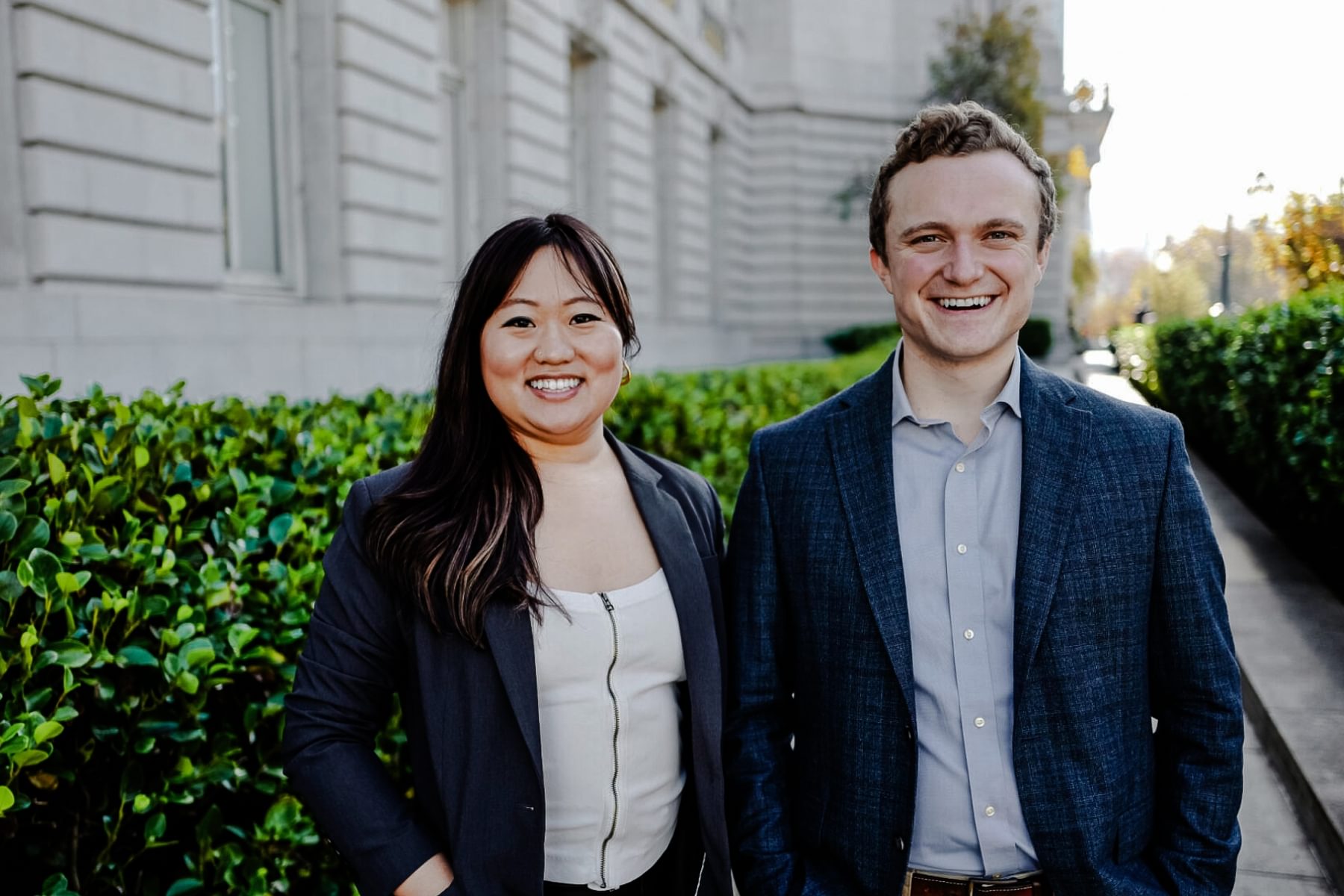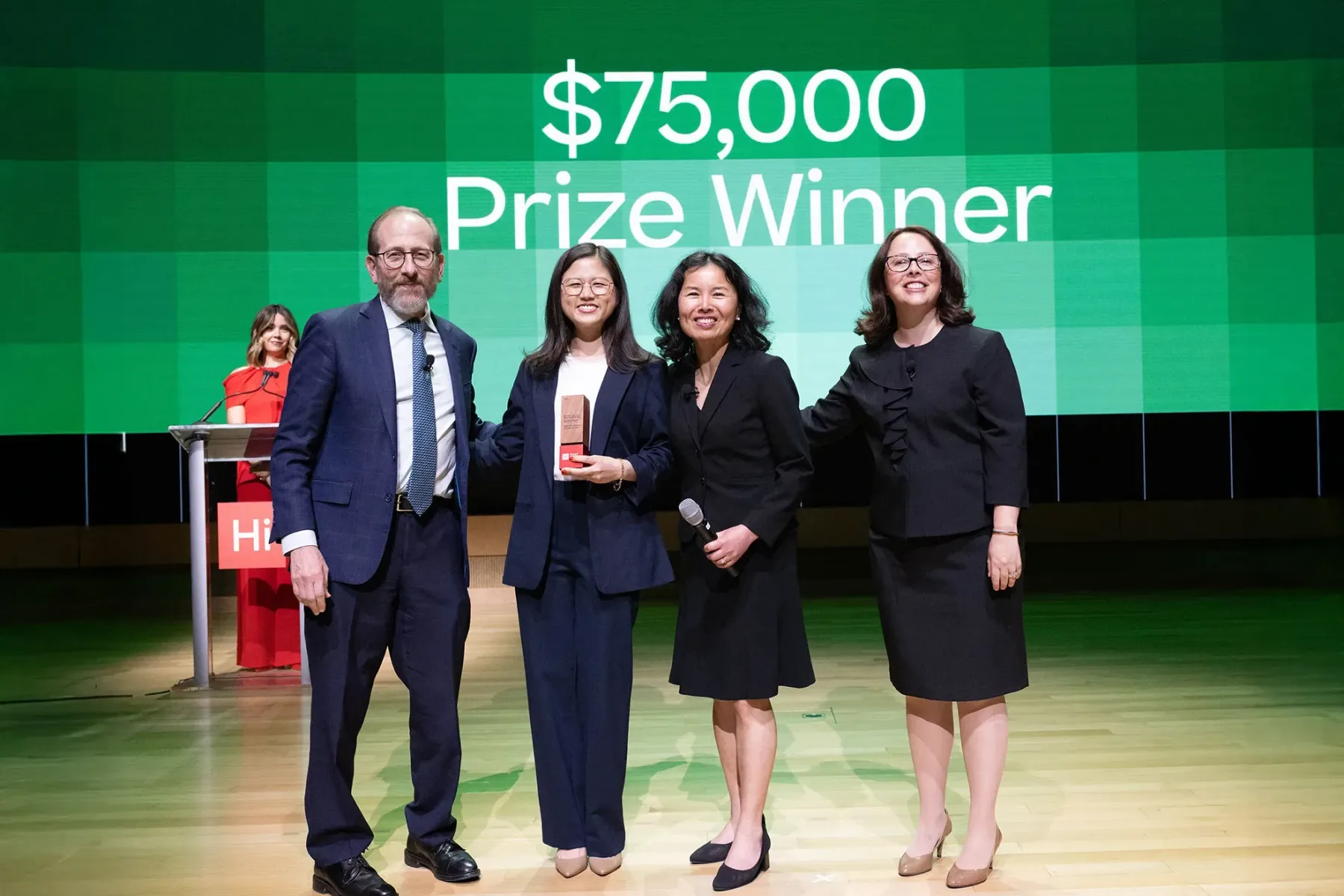Growing up in Cameroon, Pelkins Ajanoh (HBS ’22) spent holidays with his grandmother. She planted and farmed cassava, a root vegetable commonly grown in Africa that ranks fourth amongst staple crops. Encouraged by friends and family to “go to school so you don't have to farm,” Ajanoh excelled as a student, landing at MIT to study mechanical engineering. During a student internship at GM, where he worked on self-driving cars, Ajanoh contributed to a patent related to radar for autonomous vehicles.
“Getting that patent was a burst of realization that you can do something valuable in the world,” shared Ajanoh. “After that internship, I started to think about what kind of problem I wanted to solve.”
Advanced car technology wasn't it. Instead, Ajanoh began reflecting on growing up with a cassava-farming grandmother and the struggles she faced when storing and selling a crop that has a short shelf life. He also recognized the crop’s incredible potential to become an alternative to grains like wheat and maize. He thought, “If I could invent a technology for self-driving cars during my internship, then I think I can solve this problem of increasing cassava’s shelf life.”
Recently, Ajanoh sat down with the Harvard Innovation Labs to share how zeroing in on this problem led him to start CassVita, a venture leveraging proprietary processing methods for storing and processing cassava. Only five years since launching, the company is making significant strides to empower farmers and eradicate food insecurity globally.
Seeing and studying the problem
While Ajanoh was deeply familiar with cassava given his family’s history of farming the crop, he didn’t start thinking about how cassava could replace grains until he left Cameroon.
“The thing about problems is, you don’t see them when you’re in them,” said Ajanoh. “Growing up, when you see something every day, it’s not a problem to you — it’s your day-to-day reality. It’s only when you get out that you start to see differently. I only started to see the issues around cassava when I came to the US.”
Ajanoh approached the problem of increasing cassava’s short shelf life from a scientific perspective. He began to conduct research on how other carbohydrates are preserved and came up with an idea for cassava preservation. He then traveled to Cameroon with some of his friends as part of a three-month MIT travel program, continuing to do research and test potential preservation methods. When he came back to the US, he felt that he had a working preservation method that could be patented, and turned his attention towards building an organization.
Initially, nobody believes in what you're trying to do...the good thing was, I was at Harvard.

Receiving university support
“Initially, nobody believes in what you’re trying to do,” said Ajanoh. “I understood that and didn’t go big. Once we had the technology, we started applying for grants. The good thing was, I was at Harvard.”
Ajanoh came to Harvard Business School and Harvard John A. Paulson School of Engineering and Applied Sciences in 2020 for the joint MS/MBA program. Soon after, he joined the Harvard Innovation Labs. In reflecting on his time at Harvard, Ajanoh shared the importance of the mentorship and funding opportunities he received.
“Through Harvard Business School and the Harvard Innovation Labs, I was able to get connected to the Fund for Innovation and Development, created by [French President Emmanuel] Macron, and we got two rounds of grants from them,” Ajanoh said. “Also, some of our early investors were introductions from the Harvard Innovation Labs staff.”
In addition to accessing network-building resources, CassVita won a Harvard Innovation Labs Social Impact Fellowship Fund, and was a runner-up at the 2022 Harvard President’s Innovation Challenge. This funding, coupled with other early investments, enabled CassVita to “build a smaller plant to produce a pilot of our cassava processing method.” After building the plant in 2021, CassVita sold the first units of the product, which enabled it to generate hundreds of thousands of dollars in revenue.

Meeting a food insecurity need
A pivotal moment for CassVita came in 2022, when the Russia-Ukraine war sparked what Ajanoh described as a “huge food insecurity crisis across Africa.” He explained:
“African countries are heavily reliant on wheat imports from Russia, Ukraine, Germany, and Poland. The food chain disruption created by the war was a wake-up call towards an underlying problem of how grain imports hurt the balance of trade in many African countries, which in turn prompted an import substitution movement — government leaders needed to find a substitute for grains.”
Because CassVita had already validated that cassava with a longer shelf life offered an ideal substitute for wheat, Ajanoh went back to investors for capital to build “a much larger, fully automated facility” that now processes cassava into flour, starch, and animal feed. A significant portion of the capital was provided by The Steele Foundation for Hope, a venture philanthropy fund based in New Hampshire that invests in companies providing sustainable access to healthcare, water, food, and education.
Around the same time, Ajanoh also met with representatives from Nestle. The corporation was thinking about substituting some of their ingredients with local alternatives. Soon, they began working together on industrial trials. Today, “CassVita is the only business supplying cassava flour to Nestle on the entire continent of Africa,” shared Ajanoh.



Creating markets that improve farmers’ livelihoods
Between 2022 and 2025, CassVita has scaled from working with hundreds of cassava farmers to thousands. In discussing how the organization works with farmers in a way that is truly beneficial for them, Ajanoh emphasized the importance of first getting commitments from buyers and then expanding farming relationships.
“A lot of organizations give farmers inputs and tools to increase yield, but don’t think about what happens when the yield is increased. If you want to have a sustainable innovation that improves farmers’ livelihoods, it has to start with market creation. First, we created a bigger market for cassava by getting agreements, and then formed more partnerships with farmers to help them increase their revenue.”
The farmers CassVita works with have seen 400% increases in income, on average. In the next three years, CassVita is looking to scale to 10,000 farmers.
Tackling food insecurity on a global scale
Today, CassVita is substituting 10% of the wheat import in a region of Cameroon, continuing to work with Nestle, and providing cassava-based products to the government of Trinidad. Additionally, by extending cassava's shelf life, Cassvita is helping to advance a key climate solution as highlighted by Project Drawdown: reducing the greenhouse gasses, land, and resources associated with food waste.
While CassVita is focused on the preservation and sale of cassava, the company's process for increasing cassava's shelf life also has the potential to be applied to other crops. “Our big picture vision is to eradicate food insecurity globally through breakthrough innovations, and as a result, improve the livelihoods of vulnerable communities,” said Ajanoh.





